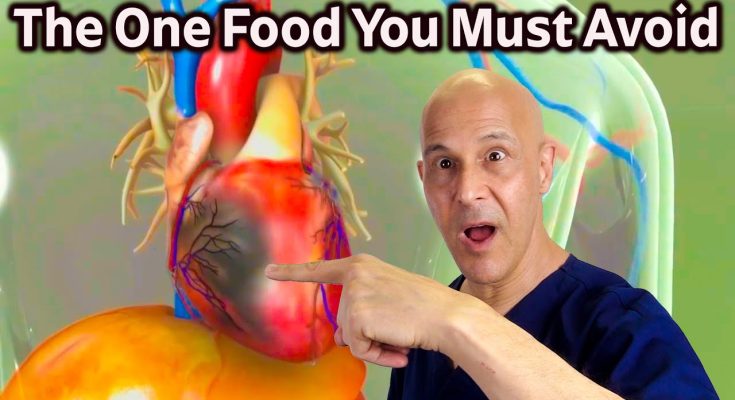Heart disease is the leading cause of death worldwide and one major contributor to the silent killer is something that many of us consume daily without even realizing it it’s trans fats did you know that consuming just 2% of your daily calori trans fats can increase your risk of heart disease by 23% so let’s dive into why trans fats are so dangerous and how you can avoid them trans fats are created through the industrial process that adds hydrogen to liquid vegetable oils to make them more solid in common sources of these trans
fats are found in our processed foods like margarine snack foods package baked goods as well as fried foods and they are favored by food manufacturers because they increase the shelf life and improve texture trans fats negatively impact your lipid profile by increasing levels of lowdensity lipid protein your LDL cholesterol often referred to as our bad cholesterol while simultaneously decreasing levels of high density lier proteins are HDL cholesterol or good cholesterol this imbalance contributes to the buildup of plaque in in Our
arteries clogged arteries which causes inflammation and inflammation is the key factor in the development of atherosclerosis the hardening and naring of these arteries an inflammation can damage the endothelium the inner part of the arteries making it so much easier for plaque to form and moreover trans fats can contribute to insulin resistance a precursor to type two diabetes insulin resistance itself is a risk factor for cardiovascular disease and those trans fats affect the inside of the arteries the endothelium reducing
its ability to regulate blood flow and blood pressure and this dysfunction is another pathway through which trans fats contribute to heart disease the most common well documented risk of trans fat consumption is heart disease as mentioned earlier even a small increase of trans fat intake will significantly raise your risk and guess what trans fats are also linked to the increased risk of stroke due to the impact on the blood vessels and blood flow and there’s also evidence suggesting that trans fats contribute to the development of type 2
diabetes by promoting insulin resistance Beyond cardiovascular issues trans fats has been linked to other health problems such as obesity and liver dysfunction the first number one step in avoiding trans fats is learning how to read those food labels look for partially hydrogenated oils in the ingredient list first even if the label says 0 gram of trans fat it still contains up to.
5 G per serving opt for healthier fats like monounsaturated and polyunsaturated fats found in olive oil avocados nuts and fish these fats can actually help improve your cholesterol levels raising your good cholesterol and lowering your bad cholesterol you might want to start cooking at home more because cooking at home allows you to control the ingredients and avoid those trans fats and you want to use your healthier oils like olive oil avocado oil instead of margin or shortening when it comes to dining out when eating out be cautious
of those fried foods and those baked goods as these are often high in trans fats and don’t hesitate to ask the restaurant about the oils that they use so remember that trans fats are a hidden danger in many of the foods that we consume daily and by understanding what they are and how they affect our bodies we can make better choices for our heart health take a moment today to check the labels on the foods in your pantry make a commitment to reduce or eliminate those trans fats from your diet and I promise you your heart will love you I
hope this video serves you well and please share it with your friends and family you’ll be doing them a big big favor and also you’re going to be helping them with their health as well please leave your comments below and most important make it a great day I’m Dr Alan Mandell.
Here are the key points:
- Trans Fats and Heart Disease: Trans fats, commonly found in processed foods, significantly increase the risk of heart disease. Consuming just 2% of daily calories from trans fats can raise heart disease risk by 23%.
- Sources and Effects: Trans fats are created by adding hydrogen to vegetable oils, making them more solid. They are prevalent in margarine, snacks, baked goods, and fried foods, and they negatively affect cholesterol levels by increasing LDL (bad cholesterol) and decreasing HDL (good cholesterol).
- Health Risks: Trans fats contribute to arterial plaque buildup, inflammation, and atherosclerosis. They also promote insulin resistance, a precursor to type 2 diabetes, and impact blood flow regulation.
- Prevention and Alternatives: Avoid trans fats by reading food labels for partially hydrogenated oils, choosing healthier fats like those in olive oil, avocados, nuts, and fish, and cooking at home. Be cautious with fried and baked foods when dining out.
- Action Steps: Check food labels, commit to reducing or eliminating trans fats from your diet, and make healthier food choices to improve heart health.
In this video, we delve into the alarming truth about trans fats, often dubbed the “hidden heart killer”. Trans fats are a type of unsaturated fat that can be found in both natural and artificial forms. However, it’s the artificial trans fats, commonly found in processed foods, baked goods, and fried fast foods, that pose a significant threat to your heart health. Consuming trans fats increases your levels of LDL (bad) cholesterol while simultaneously lowering HDL (good) cholesterol.
This dangerous combination leads to the buildup of plaque in your arteries, contributing to a higher risk of heart diseases, stroke, and type 2 diabetes. Despite being widely recognized as harmful, trans fats can still lurk in many of our favorite snacks and meals, hidden under labels like “partially hydrogenated oils”. By educating yourself about these hidden dangers and diligently checking food labels, you can take crucial steps to protect your heart health. Watch this video to learn more about why trans fats should be the one food you must avoid to ensure a healthier, longer life.



